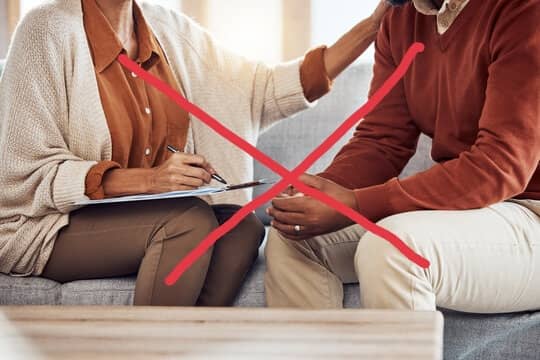Angela Malomo
Mental health is a crucial aspect of overall well-being, yet seeking help remains a daunting task for many African men. Mistrust of therapists and cultural differences are significant barriers to seeking therapy.
“I believe that therapists enjoy the power they have over their clients… Society must not be hell-bent on infantilising and feminising men. Let men be men.” – Said Simbarashe
African men often prefer to preserve privacy and confidentiality, making it challenging to disclose personal problems to strangers.
“It does not help to set up a date so you can meet up with some nerd who has not gone through anything… You need a sober-minded person who has gone through worse than what you are going through.” Said Mpumelelo Ncube.
The perceived lack of cultural understanding and sensitivity from therapists also contributes to the mistrust.
“We are the most informed generation in mental health issues. This is why I find it strange how we are also the most suicidal generation… Our knowledge has since become a weapon for our own destruction.” Mental health advocate
Traditional approaches to mental health are often preferred over Western-style therapy.
“Counselling differs from one race to another… What makes people skeptical of modern Western counselling is that you will be dealing with someone who has never faced the problem you are facing.” Said Dr. Gasolo
Faith in the family system is another reason why counselling is frowned upon.
“If a man wants to vent out, he has his brothers for it. Therapy is just talk without action. His brothers will incline him to action.” Said a young man who refused with his name.
It was unheard of that a man of yesteryear would commit suicide because of a problem. These problems were taken a men’s forum, itshukelwa ebandla. In such fora, men will discus the challenges at hand and come up with probable solutions.
The traditional African man, especially Zimbabwean men, were taught to be responsible at a very tender age. This responsibility came with problem solving than being a crybaby.
“I was told that ngingubaba (you are a father) when I was five years old. I was told that ubaba akakhali (a father does not shed tears), I was taught to take care of my mother and sisters, at that tender age.” Said Absolom Phiri who has vehemently refused to see a therapist.
He narrated that, he grew up in Makokoba, one of the notorious surbubs of Bulawayo. The toilet and water tap was located some fifteen meters away from the main house. He would be asked to go and fetch water on his own in the middle of the night in darkness.
There were no outside lights, nor street lights.
“I was taught that indoda kayisigwala, kufanele ubelesibindi (a man must be brave and not be a weakling).”
With that mentality, Phiri grew up to be one of the best business analyst, problem solver, good family member and a father.
He runs successful businesses.
It is therefore prudent that the traits of the olden days that were used to groom young boys into real men be reinstituted for the man to stand up and be counted amongst real men.
Zim GBC News©2024


